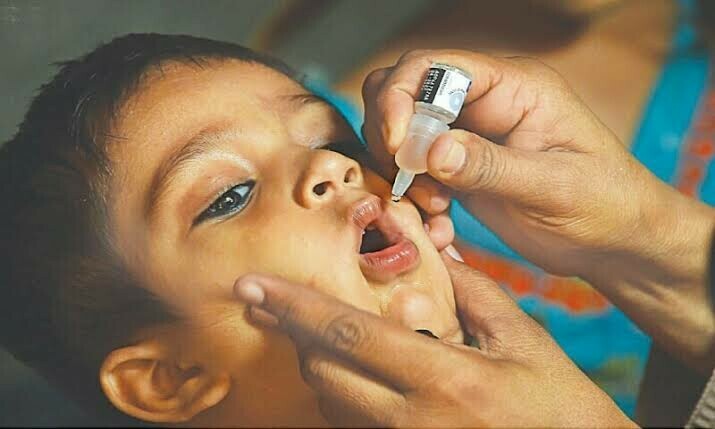
[ad_1]

ISLAMABAD: Pakistan has reported two more polio cases, with the latest victims of crippling virus being found in Sindh and Khyber Pakhtunkhwa, bringing this year’s number of cases from across the country to 48.
Also, the country has detected wild poliovirus type 1 (WPV1) in environmental samples collected from two more districts i.e. Bajaur and Gujrat.
According to an official of the Regional Reference Laboratory for Polio Eradication at the National Institute of Health, the lab has confirmed the detection of two WPV1 cases.
“The victim is a male child from Ghotki district of Sindh.”
Ghotki borders the districts of Sukkur, Rahim Yar Khan and Shikarpur where the virus has been reported earlier this year.
“This is the first polio case from Ghotki. Second case has been reported in a 28-month-old male child from Dera Ismail Khan district of KP. D.I. Khan is among the polio-endemic districts in southern KP. This is the third polio case from Dera Ismail Khan and 48th case from Pakistan at large this year. Genetic sequencing of the samples collected from the child is under process.
“So far, 23 cases have been reported from Balochistan, 13 from Sindh, 10 from KP and one each from Punjab and Islamabad. Genetic sequencing of the samples collected from the child is under process,” he said.
“The oral polio vaccine is essential to keep children protected from disability from a polio infection. The Polio Programme brings the oral polio vaccine to citizens’ doorsteps multiple times a year, while the Expanded Programme for Immunisation provides vaccines against 12 childhood diseases at nearest health centers free of charge,” he said.
“We urge parents across the country to ensure multiple doses of the oral polio vaccine for all children under five in their care and ensure that their routine vaccination doses are also complete,” he said.
Meanwhile, the NIH lab has confirmed the detection of WPV1 in environmental samples collected from two new districts as well as 15 other districts where samples had tested positive previously.
“As of Nov 8, 2024, sewage samples collected from Gujrat, Multan, Bannu, D.I. Khan, Tank, Bajaur, Nasirabad, Barkhan, Quetta, Dukki, Dera Bugti, Khuzdar, Sibi, Qila Saifullah, Mastung, Karachi East and Karachi Malir tested positive for WPV1.”
These are the first WPV1 detections of the year from Bajaur and Gujrat, while the remaining 15 districts have previously reported virus detections in either humans or sewage samples, he told Dawn.
Replying to a question, the official explained that if virus was found in the sewage, the sample was called positive and whenever a child was paralysed with the virus, it was called a positive case.
“A sewage water sample from an area is the basic parameter to determine if polio vaccination campaigns are being carried out successfully. After detection of samples immediately polio campaigns are held to eradicate the virus from the area,” he said.
Polio is entirely preventable with the help of multiple doses of an easily accessible oral polio vaccine.
“The Pakistan Polio has concluded the first phase of a nationwide polio vaccination campaign that reached 44.9 million children under five with the vaccine,” the official said, adding that the second phase would be held in six districts of KP — Kurram, Lakki Marwat, Tank, D.I. Khan, upper and lower South Waziristan from Nov 11 to 15.
Published in Dawn, November 9th, 2024
[ad_2]
Source link






